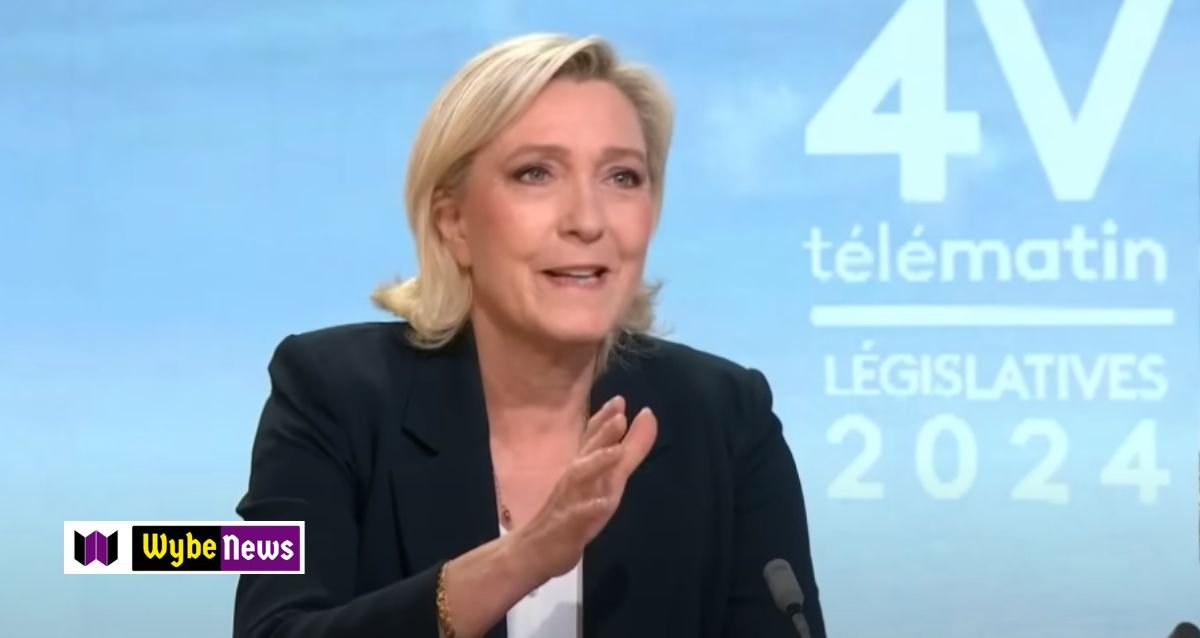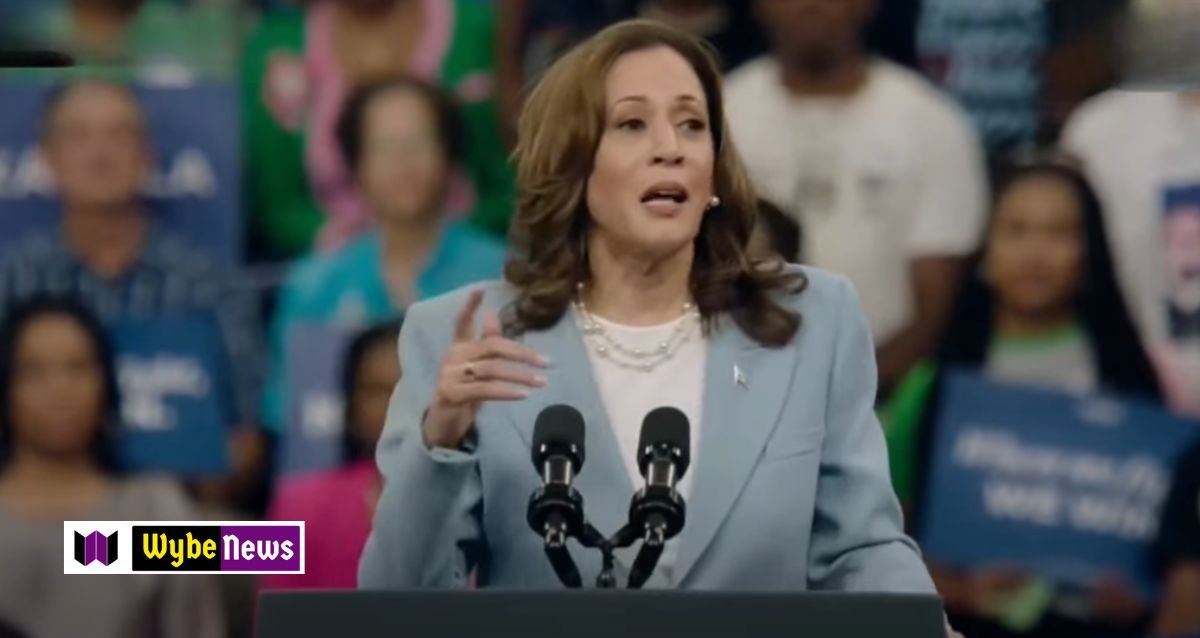Marine Le Pen’s Warning: Macron’s Potential Limitations in Sending Troops to Ukraine Under National Rally Government

Background: France’s Upcoming Parliamentary Elections
France is on the brink of significant political change as it approaches its snap parliamentary elections. The electoral process, which takes place in two rounds, is designed to ensure that the elected representatives hold the majority support of their constituencies. The first round will see all eligible parties compete, while the second round, held a week later, will feature a runoff between the top candidates if no one achieves an outright majority initially.
Among the key parties vying for control are President Emmanuel Macron’s Ensemble alliance, Marine Le Pen’s National Rally (RN), and the left-wing New Popular Front. Macron’s Ensemble, a centrist coalition, has been the dominant force in French politics since his election as President. However, it now faces substantial challenges from both the right and the left. Marine Le Pen’s National Rally, a far-right party, has significantly increased its influence and popularity, capitalizing on growing discontent with Macron’s policies. The New Popular Front, an alliance of left-wing parties, also aims to consolidate the left’s position in the political landscape.
Opinion polls indicate a competitive race ahead, with Marine Le Pen’s National Rally potentially securing around 36% of the vote. While this figure represents a substantial share, it may still fall short of the absolute majority required to gain full control of the parliament. Should this scenario materialize, it would necessitate coalition-building and strategic alliances to form a functional majority. The Ensemble alliance, despite facing declining support, remains a formidable contender due to its established political machinery and Macron’s incumbency.
The upcoming elections are vital, not only for determining the legislative agenda but also for shaping France’s domestic and international policies. As the election date approaches, all eyes are on the evolving political dynamics and the potential implications for France’s future governance.
Marine Le Pen’s Stance on Macron’s Military Powers
Marine Le Pen has expressed a clear position on President Emmanuel Macron’s ability to deploy troops, particularly in the context of Ukraine. If her party, National Rally, ascends to government, Le Pen asserts that Macron’s role as the chief of the armed forces would become more symbolic. This shift would occur because the prime minister, who controls the budget, would have substantial authority to counteract any decision to send troops abroad.
Le Pen’s standpoint is rooted in a reconfiguration of the power dynamics between the president and the prime minister. She argues that under a National Rally government, the prime minister’s control over financial resources would effectively limit the president’s military options. This proposed structural change is aimed at ensuring that significant military engagements, such as potential troop deployments to Ukraine, would require broader governmental consensus, reflecting a more restrained and fiscally responsible approach.
In an interview with a local newspaper, Le Pen elaborated on her vision, emphasizing the importance of parliamentary oversight and fiscal prudence. She highlighted that Jordan Bardella, the leader of National Rally, would seek to curtail the president’s powers if he were to become the prime minister. According to Le Pen, this recalibration of roles would prevent unilateral military actions and promote a more balanced governance model where the prime minister holds substantial sway over budgetary decisions, including military expenditures.
Le Pen’s critique of Macron’s current military capabilities underscores her broader political strategy to redefine executive powers within the French government. By advocating for a budget-controlled approach to military deployment, she aims to position National Rally as a party committed to cautious and deliberate foreign policy decisions, thereby limiting the potential for hasty or unilateral military interventions.
Implications of a National Rally Government for France’s International and Defense Policy
France’s international and defense policy could witness significant shifts under a National Rally government, particularly in light of Marine Le Pen’s warnings concerning President Emmanuel Macron’s stance on the Ukraine conflict. Macron has consistently positioned himself as a firm supporter of Ukraine, openly condemning Russian aggression and maintaining a robust stance. He has not ruled out the possibility of sending French troops to Ukraine should the situation escalate further, underscoring his commitment to NATO and European solidarity.
In stark contrast, Marine Le Pen and the National Rally party advocate for a more cautious approach towards international military engagements. Le Pen has voiced her opposition to deploying French troops in Ukraine, suggesting that such actions could entangle France in a protracted conflict with considerable risks. A National Rally government would likely prioritize national sovereignty and adopt a more isolationist stance, thereby altering France’s current international alliances and commitments.
The potential for cohabitation, where the presidency and the government hail from different political parties, introduces additional complexity. In such a scenario, Macron’s ambitious plans for military support to Ukraine might be curtailed by a National Rally-led government. This power-sharing arrangement could lead to a more restrained defense policy, with France possibly reducing its involvement in NATO-led initiatives and pivoting towards a more independent defense strategy.
The implications of these policy changes extend beyond the immediate conflict in Ukraine. A National Rally government might seek to renegotiate France’s role in the European Union and reassess its participation in various international coalitions. Such shifts could lead to a redefined geopolitical landscape, with France potentially distancing itself from traditional allies and exploring new diplomatic and military partnerships.
Overall, the establishment of a National Rally government would mark a significant departure from Macron’s current international and defense policy, potentially reshaping France’s role on the global stage amidst ongoing tensions in Ukraine.
Public and Political Reactions to Le Pen’s Statements
Marine Le Pen’s recent comments regarding President Emmanuel Macron’s potential limitations in deploying troops to Ukraine under a National Rally government have sparked significant public and political reactions. High-profile public figures and political entities have weighed in, reflecting a spectrum of concerns and opinions.
NBA star Victor Wembanyama, a prominent global figure, has been vocal in urging French voters to reject extremist parties. His statements underscore a broader concern among celebrities and public figures about the potential implications of a National Rally government. Similarly, France football captain Kylian Mbappé has echoed these sentiments, emphasizing the importance of maintaining democratic values and rejecting extremism in all forms.
Political allies of President Macron have also responded robustly. François Bayrou, a key supporter of Macron, has accused Marine Le Pen of undermining the president’s constitutional powers. He argued that Le Pen’s statements not only challenge the authority of the presidency but also create unnecessary political instability at a crucial time for Europe. Other members of Macron’s La République En Marche! party have similarly condemned Le Pen’s remarks, viewing them as an attempt to weaken France’s commitment to its international obligations.
On the international front, Ukrainian President Volodymyr Zelensky has expressed confidence in the continuity of French support for Ukraine, irrespective of the election outcome. Zelensky’s statement aims to reassure both Ukrainian citizens and the international community that France’s stance on Ukraine will remain steadfast. His confidence reflects a belief in the resilience of Franco-Ukrainian relations, regardless of the domestic political shifts in France.
These reactions collectively highlight the contentious nature of Le Pen’s comments and the broader implications for French foreign policy and internal political stability. The diverse array of opinions from public figures, political allies, and international leaders underscores the significance of the upcoming elections and their potential impact on France’s role on the global stage.






